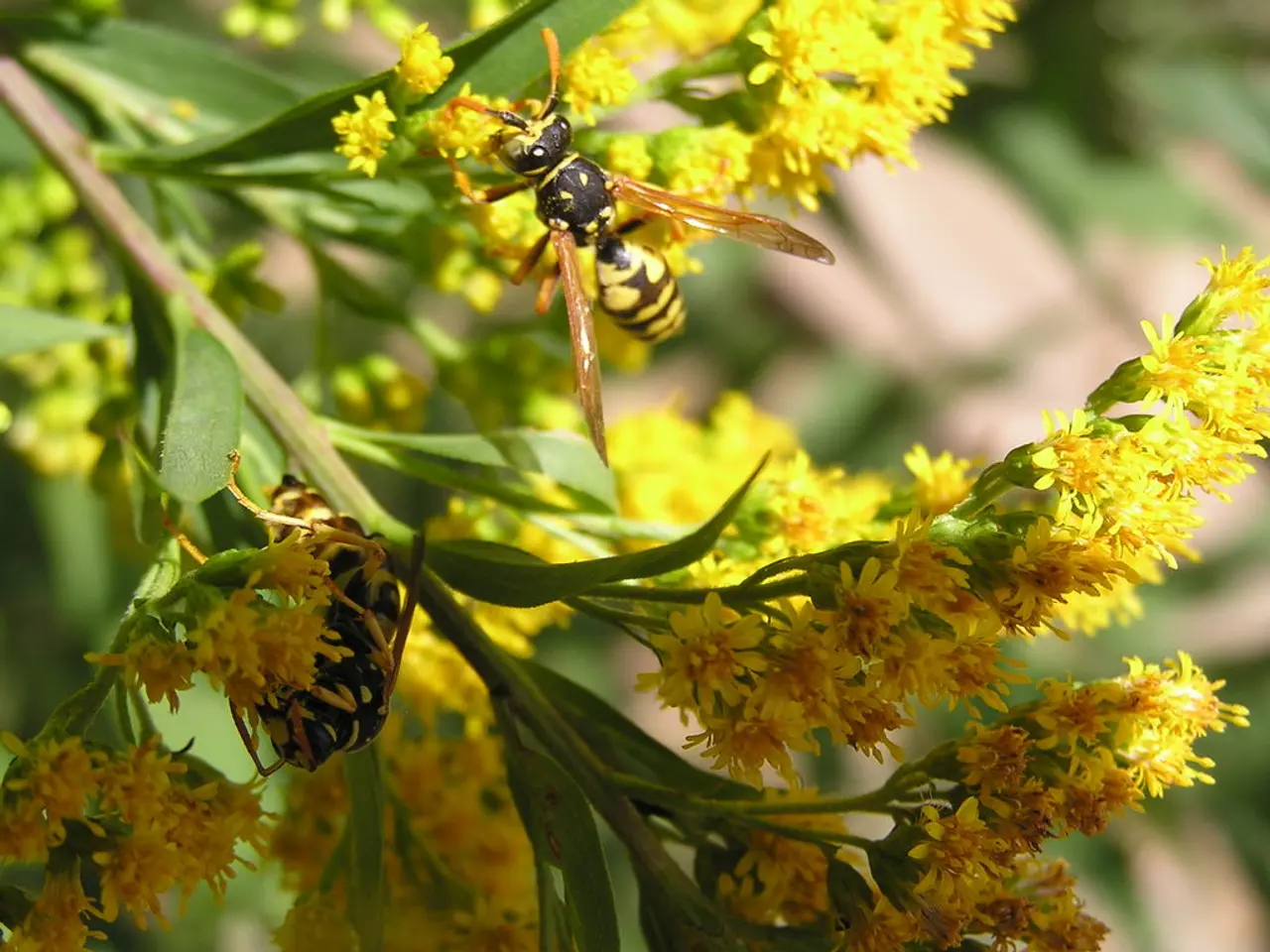Eliminating Aphids Organically in Your Yard and Indoor Spaces
In the world of gardening, aphids are among the top 10 problems faced by plant enthusiasts. These tiny pests, found on the undersides of leaves or the growing tips of plants, can make plants look wilted, sickly, and fail to thrive. Worryingly, they can also transmit diseases, like viruses, to their hosts, potentially killing entire plants due to sap-sucking and their toxic saliva.
Fortunately, there are several effective, non-toxic methods to get rid of aphids on indoor plants. One such method is spraying plants with soapy water. A solution made from mild liquid soap such as Castile soap mixed with water (around 1 teaspoon soap per cup of water) suffocates aphids without harming plants or beneficial insects. Spray directly on affected areas, especially under leaves, once a week or as needed.
Another natural approach is rinsing plants with water using a strong spray from a sink or spray bottle. This physical removal helps reduce aphid numbers. Regular rinsing is recommended for effective control.
For those who prefer a more aromatic solution, homemade garlic spray can be used. By crushing a head of garlic and soaking it in hot water overnight, then spraying this on plants, aphids will avoid treated plants due to the strong odour.
Removing heavily infested leaves or plants can also help reduce aphid populations and improve airflow. Additionally, growing companion plants indoors or nearby that repel aphids naturally, such as marigolds, catnip, mint, dill, or fennel, can provide an effective barrier against these pesky pests.
Setting up trap plants like nasturtiums or calendula nearby can also attract aphids away from your main plants. Once infested, these trap plants can be removed and disposed of to prevent the spread of aphids.
Beneficial insects like ladybugs, green lacewings, and gall midges can help control aphid populations. These insects are available for purchase online or at gardening stores. Treating the garden with neem oil can also help prevent aphids.
Hydrogen Peroxide (H2O2) is another useful tool in the fight against aphids. This water molecule with an extra atom of Oxygen can attack bacteria and small insects, such as aphids, when in contact. A 3% hydrogen peroxide solution can be used for treating minor cuts and scrapes, softening earwax, and as a gardening pest control. For indoor plants, adding hydrogen peroxide to a nutrient tank can kill bad root material and bacteria and oxygenate the roots.
Practice companion planting to keep aphids at bay. Some plants (like catnip) keep aphids away, while others (like nasturtium) attract them. Flowers like daisies, calendula, and sunflowers attract beneficial insects that will eat the aphids.
By using these natural methods, gardeners can effectively control aphids without harming their indoor environment, pets, or children. Castile soap is preferred over regular dish soap because it is gentler and less likely to damage plants. Consistency is key, so treatments should be repeated every few days to thoroughly control aphids.
- In addition to natural aphid control methods, organically grown vegetables and herbs can be planted in a home-and-garden setting to complement the garden lifestyle.
- A home compost bin can provide nutrient-rich soil for the garden, promoting healthy growth of flowers and plants, including those that repel aphids.
- A decorative DIY succulent garden, filled with a variety of plants, can serve as a natural aphid deterrent while adding aesthetic appeal to the home-and-garden environment.
- Beyond hurting aphids, regularly treating indoor plants with organic compost tea or liquid seaweed fertilizer can strengthen their resistance to pests and promote overall plant health.
- For those interested in organic gardening, educating oneself on the best plants to grow for maintaining a harmonious indoor-garden ecosystem is essential for controlling aphids effectively while enjoying a more eco-friendly lifestyle.




